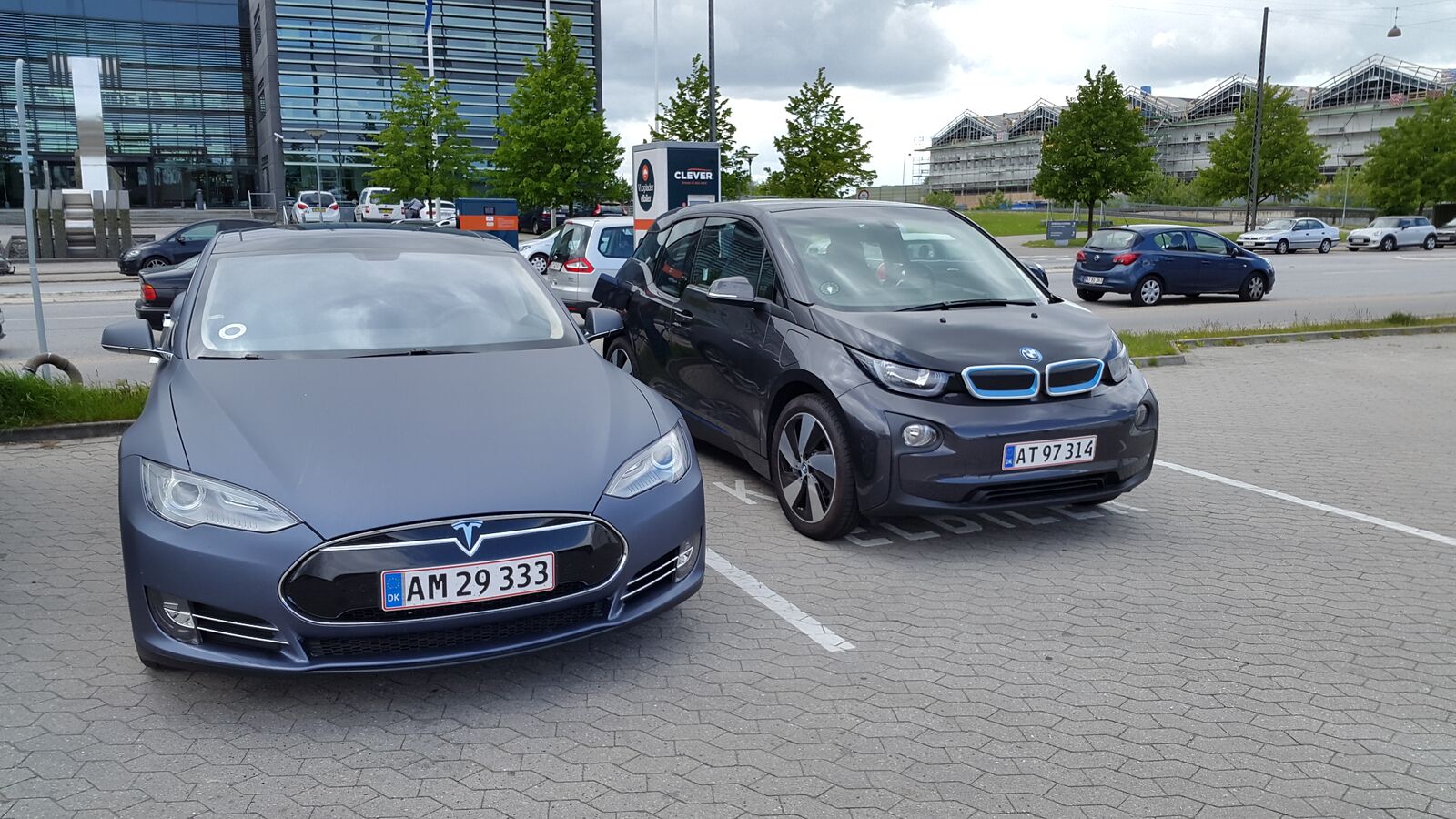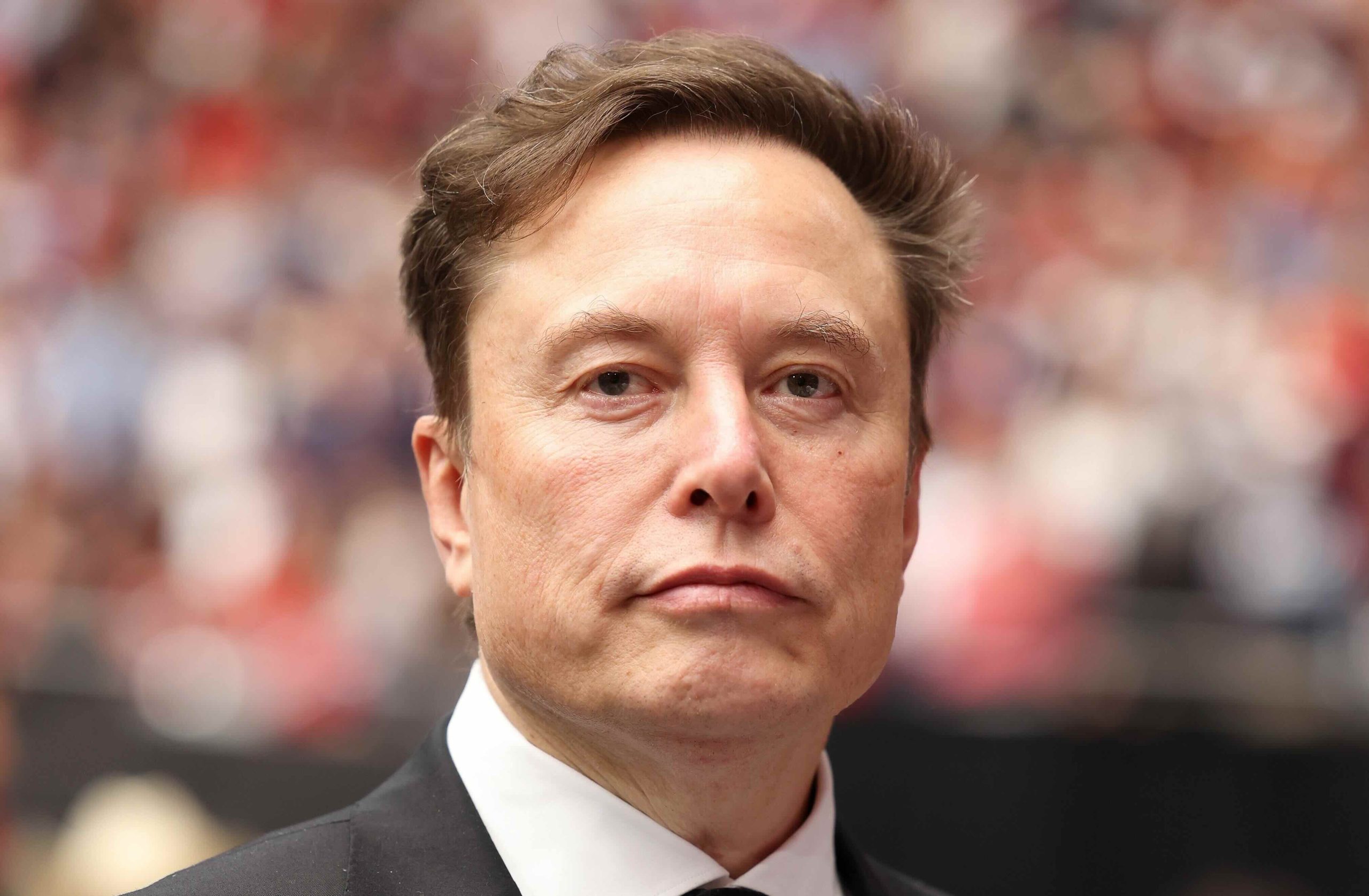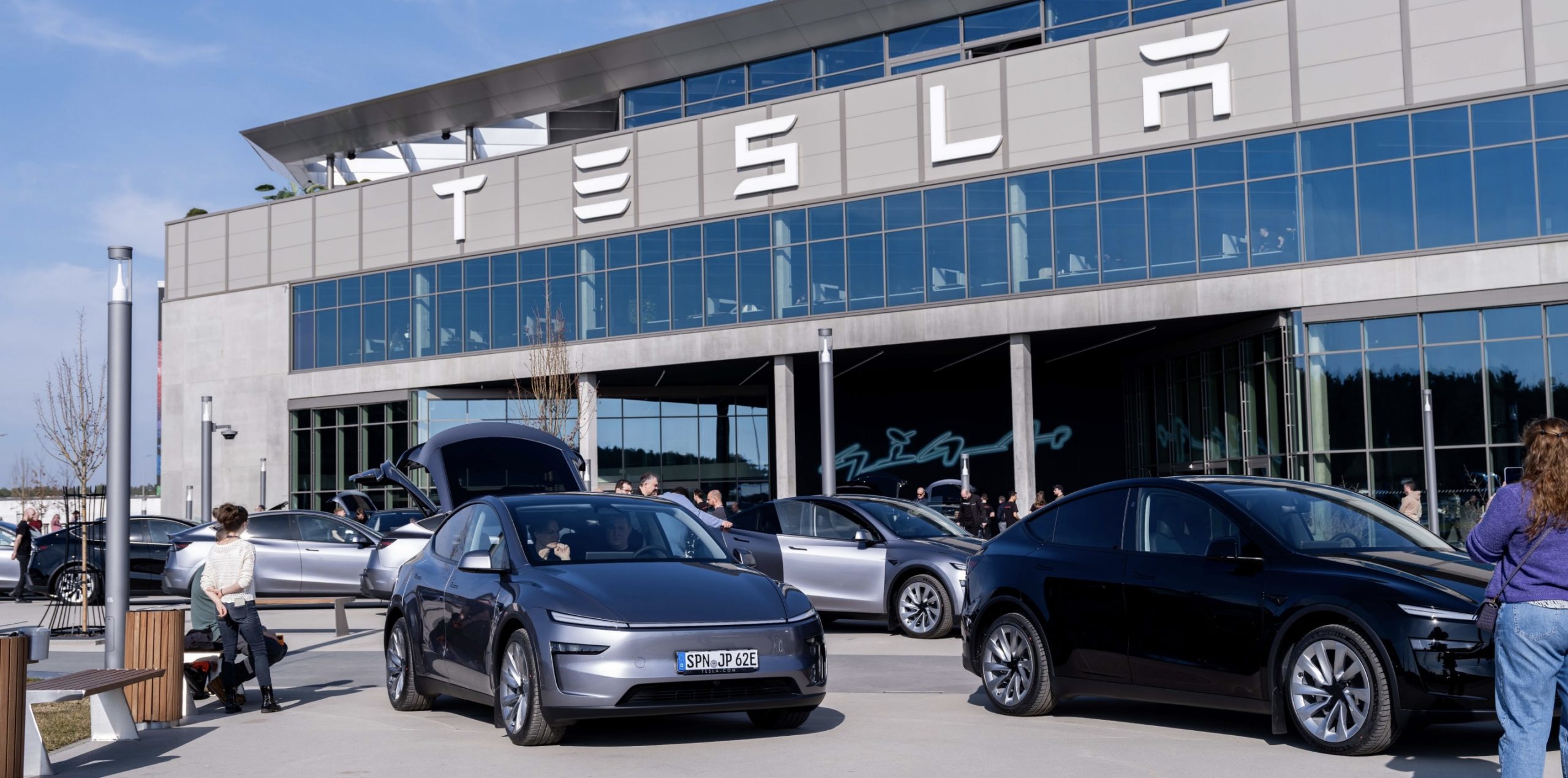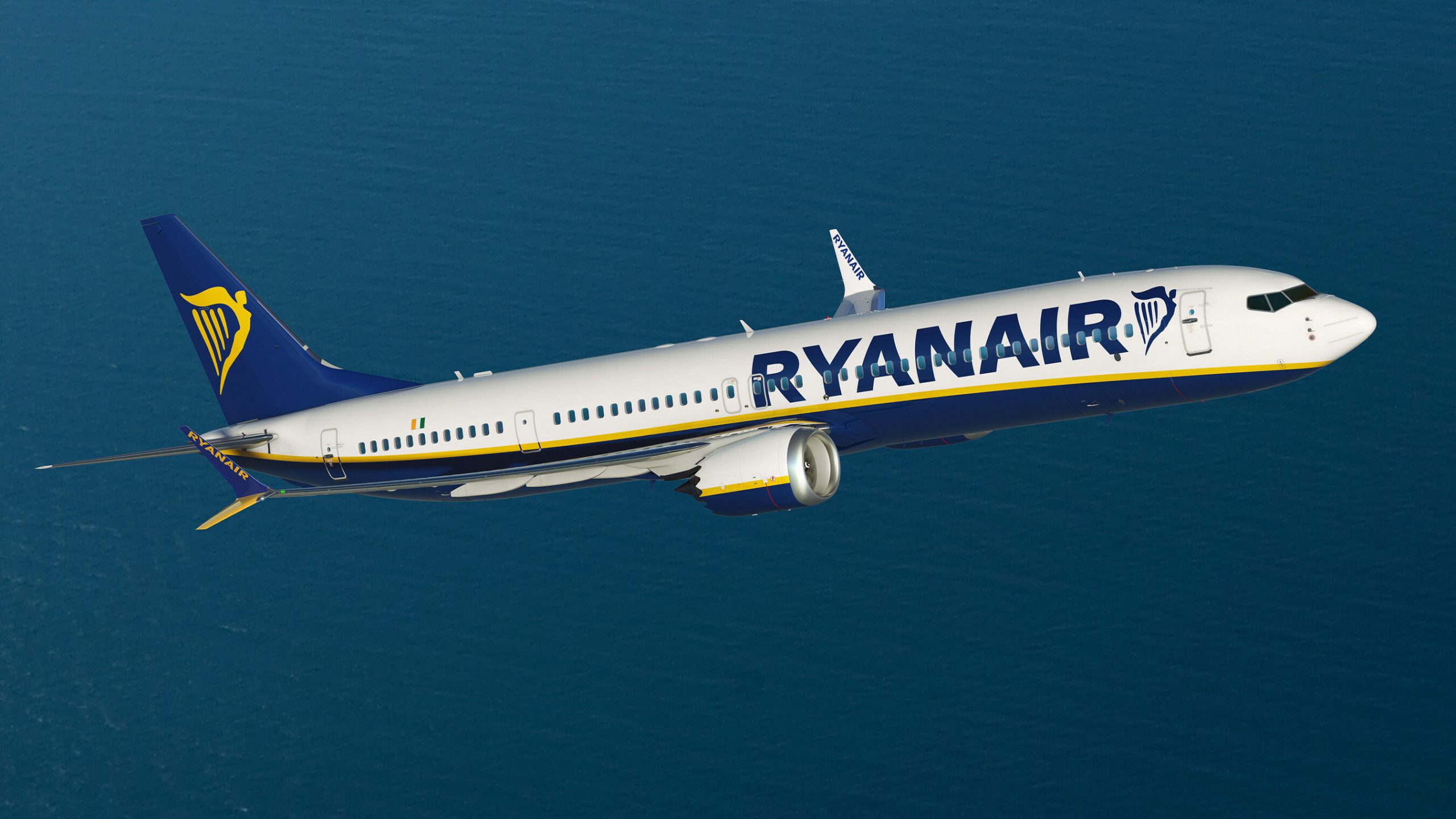News
German official rallies automakers to produce EV batteries in Europe

Recognizing how integral rechargeable batteries for electric vehicles will be for the future of the European car industry, the German Minister of Economic Affairs has called for a joint effort by Europe and its car manufacturers to produce batteries for electric vehicles (EVs).
Gabriel told publication Spiegel, “We should launch a major initiative to build independent battery cell production and research for all European car makers.” He called upon all eligible automotive manufacturers to participate, with the goal to maintain leading edge automotive production in Germany and Europe.
He went so far as to suggest that the state might assist in the project. “The funding of the European investment funds, which President Jean-Claude Juncker has set up, could help finance the company.”
EVs are considered the most promising alternative to internal combustion engine vehicles towards a cleaner transportation sector. However, in order to reduce greenhouse gas emissions, EVs must contain adequate electricity generation needed to charge its batteries. Gabriel has repeatedly implored European auto manufacturers not to leave this field to competitors. Not every European car manufacturer is convinced.
Individual European automakers have struggled with the decision on whether to invest in costly battery R&D or source from an outside supplier. BMW CEO Harald Krüger explained only a few days ago that his company has not yet finalized the decision to he would enter lithium-ion battery production. “We still have to look at that.” Only a month earlier, Krüger had announced a new electric car strategy, with a range of models of existing series also with an electric drive, including a revised version of its BMW i3 capable of 114 miles per single charge. In contrast, Daimler announced earlier in the year that it would be investing 500 million euros to build another factory in the Kamenz district of Saxony for the production of lithium-ion batteries, which are intended to support electric and hybrid vehicles from the Mercedes-Benz and Smart brands. On November 25, Daimler announced it is is planning to invest up to 10 billion euros ($11 billion) in developing electric vehicles.
Volkswagen (VW) CEO Matthias Müller included in an interview with the Bild that, by 2020, VW will offer 30 all-electric models. Müller had already predicted that, in 2025, approximately 20 to 25 percent of total sales will be achieved with electric cars. His comments arise amid strong signs of EV market expansion – followed by the worldwide response to climate change environmental concerns, deactivation of petroleum reliance, and reinforcement of exhaust gas regulation. And as part of the VW diesel emissions scandal, VW will spend $2 billion in the U.S. over the next 10 years on the Combined Charging System (CCS) and other charging infrastructure.
Porsche also expects a large demand for its first all-electric 600hp Mission E sports car scheduled to be released in 2019. “We have calculated the Mission E with a piece of the order of about 20,000,” said Porsche CEO Oliver Blume. The sports car built in Stuttgart should have a range of 310 miles (500 kilometers).
It will be up to European auto manufacturers to decide whether they will produce their own EV batteries, join in a mutual collaboration such as Gabriel has suggested, or look to an original equipment manufacturer (OEM) for their necessary battery components. Of course, the European auto manufacturers are fully aware that Tesla quietly joined the CCS consortium and, with five years of experience manufacturing and delivering EVS, is currently building its own Gigafactory.

Elon Musk
Elon Musk to attend 2026 World Economic Forum at Davos
The Tesla CEO was confirmed as a last-minute speaker for a session with BlackRock CEO Larry Fink.

Elon Musk is poised to attend the 2026 World Economic Forum in Davos. The Tesla CEO was confirmed as a last-minute speaker for a session with BlackRock CEO Larry Fink, signaling a thaw in Musk’s long-strained relationship with the event.
A late addition
Organizers of the World Economic Forum confirmed that Elon Musk was added shortly before the event to a Thursday afternoon session, where he was scheduled to speak with Fink, as noted in a Bloomberg News report. Musk’s upcoming appearance marks Musk’s first participation in the forum, which annually draws political leaders, business executives, and global media to Davos, Switzerland.
Musk’s attendance represents a departure from his past stance toward the event. He had been invited in prior years but declined to attend, including in 2024. His upcoming appearance followed remarks from his political ally, Donald Trump, who addressed the forum earlier in the week with a wide-ranging speech.
A previously strained relationship
Musk had frequently criticized the World Economic Forum in the past, describing it as elitist and questioning its influence. In earlier posts, he characterized the gathering as “boring” and accused it of functioning like an unelected global authority. Those remarks contributed to a long-running distance between Musk and WEF organizers.
The forum previously said Musk had not been invited since 2015, though that position has since shifted. Organizers indicated last year that Musk was welcome amid heightened interest in his political and business activities, including his involvement in the Trump administration’s Department of Government Efficiency (DOGE). Musk later stepped away from that role.
Despite his friction with the World Economic Forum, Musk has remained central to several global events, from SpaceX’s provision of satellite internet services in geopolitically sensitive regions through Starlink to the growing use of xAI’s Grok in U.S. government applications.
News
Tesla states Giga Berlin workforce is stable, rejects media report
As per the electric vehicle maker, production and employment levels at the facility remain stable.

Tesla Germany has denied recent reports alleging that it has significantly reduced staffing at Gigafactory Berlin. As per the electric vehicle maker, production and employment levels at the facility remain stable.
Tesla denies Giga Berlin job cuts report
On Wednesday, German publication Handelsblatt reported that Tesla’s workforce in Gigafactory Berlin had been reduced by about 1,700 since 2024, a 14% drop. The publication cited internal documents as its source for its report.
In a statement to Reuters, Tesla Germany stated that there has been no significant reduction in permanent staff at its Gigafactory in Grünheide compared with 2024, and that there are no plans to curb production or cut jobs at the facility.
“Compared to 2024, there has been no significant reduction in the number of permanent staff. Nor are there any such plans. Compared to 2024, there has been no significant reduction in the number of permanent staff. Nor are there any such plans,” Tesla noted in an emailed statement.
Tesla Germany also noted that it’s “completely normal” for a facility like Giga Berlin to see fluctuations in its headcount.
A likely explanation
There might be a pretty good reason why Giga Berlin reduced its headcount in 2024. As highlighted by industry watcher Alex Voigt, in April of that year, Elon Musk reduced Tesla’s global workforce by more than 10% as part of an effort to lower costs and improve productivity. At the time, several notable executives departed the company, and the Supercharger team was culled.
As with Tesla’s other factories worldwide, Giga Berlin adjusted staffing during that period as well. This could suggest that a substantial number of the 1,700 employees reported by Handelsblatt were likely part of the workers who were let go by Elon Musk during Tesla’s last major workforce reduction.
In contrast to claims of contraction, Tesla has repeatedly signaled plans to expand production capacity in Germany. Giga Berlin factory manager André Thierig has stated on several occasions that the site is expected to increase output in 2026, reinforcing the idea that the facility’s long-term trajectory remains growth-oriented.
News
Elon Musk gets brash response from Ryanair CEO, who thanks him for booking increase

Elon Musk got a brash response from Ryanair CEO Michael O’Leary, who said in a press conference on Wednesday afternoon that the Tesla frontman’s criticism of the airline not equipping Starlink has increased bookings for the next few months.
The two have had a continuing feud over the past several weeks after Musk criticized the airline for not using Starlink for its flights, which would enable fast, free, and reliable Wi-Fi on its aircraft.
Tesla CEO Elon Musk trolls budget airline after it refuses Starlink on its planes
Musk said earlier this week that he was entertaining the idea of purchasing Ryanair and putting someone named Ryan in charge, which would oust O’Leary from his position.
However, the barbs continued today, as O’Leary held a press conference, aiming to dispel any beliefs about Starlink and its use case for Ryanair flights, which are typically short in length.
O’Leary said in the press conference today:
“The Starlink people believe that 90% of our passengers would happily pay for wifi access. Our experience tells us less than 10% would pay; He (Elon) called me a retar*ed twat. He would have to join the back of a very, very long queue of people that already think I’m a retar*ed twat, including my four teenage children.”
He then went on to say that, due to Musk’s publicity, bookings for Ryanair flights have increased over the past few days, up 2 to 3 percent:
“But we do want to thank him for the wonderful boost in publicity. Our bookings are up 2-3% in the last few days. So thank you to Mr. Musk, but he’s wrong on the fuel drag. Non-European citizens cannot own a majority of European airlines, but if he wants to invest in Ryanair, we think it would be a very good investment.”
O’Leary didn’t end there, as he called Musk’s social media platform X a “cesspit,” and said he has no concern over becoming a member of it. However, Ryanair has been very active on X for several years, gaining notoriety for being comical and lighthearted.
🚨 Ryanair CEO’s comments on X and Starlink today at the planned presser.
Strange comments here, it just feels like it’s time to end all this crap https://t.co/NYeG95bM82
— TESLARATI (@Teslarati) January 21, 2026
The public spat between the two has definitely benefited Ryanair, and many are calling for it to end, especially those who support Musk, as they see it as a distraction.
Nevertheless, it is likely going to end with no real movement either way, and is more than likely just a bit of hilarity between the two parties that will end in the coming days.








